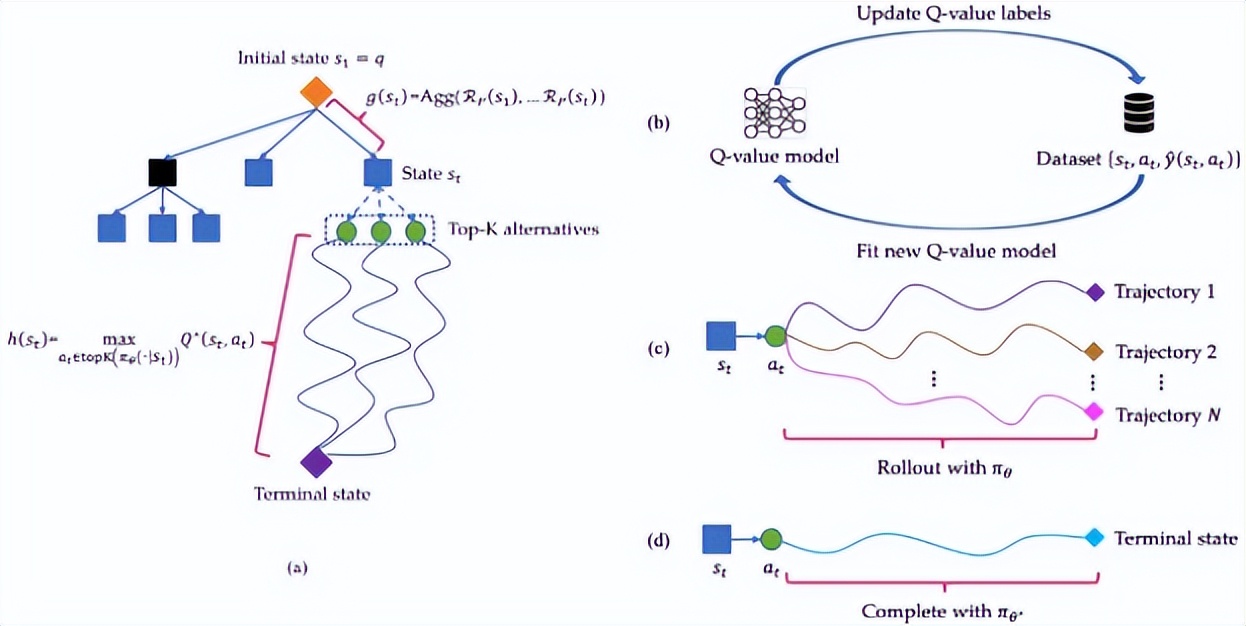AI Daily Report: OpenAI Discontinues Supply, Zhipu AI and Other Large Models Launch "Relocation Packages"
![]() 06/27 2024
06/27 2024
![]() 585
585
OpenAI announced that it will discontinue API usage in unsupported countries and regions from July 9, including China. Several domestic large model manufacturers, such as Zhipu AI, Dark Moon, and ZeroOne, have successively launched "relocation" plans and provided token packages for newly migrated developers.
OpenAI's official account announced that the ChatGPT MAC version desktop application is now freely available to the public, but the voice function originally scheduled for Plus users at the end of June will be delayed by one month.
What other hot topics in the AI industry at home and abroad are worth paying attention to in the past day? Let Raven Jun take you to take a look.
/ 01 / Large Models
1) OpenAI stops Chinese API services, and domestic large models like Zhipu AI and ZeroOne provide "relocation plans"
OpenAI clarified yesterday (25th) that it will discontinue API usage in unsupported countries and regions from July 9, including China. For these newly migrated developers, several domestic large model manufacturers, such as Zhipu AI, Dark Moon, and ZeroOne, have successively launched corresponding "relocation" plans, ranging from token gifts, usage time gifts, to "money gifts" in various forms.
Zhipu AI stated that it will provide 150 million tokens and migration services for newly migrated developers.
Tongyi Qianwen announced that it will provide 22 million free tokens and dedicated migration services for Chinese developers among OpenAI API users.
MiniMax will provide users switching to its platform with the latest abab6.5s version of the model capability and free usage for one month, with no restrictions on TPM, RPM, or token usage.
SiliconFlow announced that the APIs of several models within the SiliconCloud platform, including Qwen, GLM, and Yi series, will be permanently free.
According to ZeroOne, new registered users who receive the Yi API will receive a 100 yuan credit, and platform recharges will receive a 50% bonus, with no upper limit.
Kunlun Wanwei Tiangong provides 150 million token API call resources in its "one-click relocation plan".
2) OpenAI discontinues supply, and iFLYTEK Spark releases the optimal domestic solution
In the early morning of June 25th, OpenAI suddenly announced the discontinuation of supply to Mainland China and Hong Kong. According to the iFLYTEK Spark open platform, the five "inclusive policies" for developers' APIs include:
① Spark Lite version is permanently free
② Spark Pro version is free for one month
③ Spark Max version provides 100 million free tokens
④ The first publicly released Spark 4.0 Ultra version offers a buy-one-get-one-free promotion
⑤ Provides 1V1 technical expert support services
iFLYTEK Spark is the first large model trained based on domestic computing power, with minimal impact from international environmental changes, making it the most suitable "domestic alternative" for OpenAI Chinese developers. iFLYTEK's open platform pioneered AI API services in 2010, and to date, the global AI developer community has exceeded 7.02 million teams.
It is reported that the Spark large model V4.0 will be officially released on June 27th, and the iFLYTEK Spark 4.0 API will be launched simultaneously.
3) USTC, HIT, and Duxiaoman launch a self-regressive general text-to-image model that can generate high-quality images in 3 seconds
Institutions such as USTC, HIT, and Duxiaoman have proposed a general text-to-image model called STAR. It can generate high-quality images in just 2.9 seconds, surpassing the performance of current diffusion models, including SDXL. In addition, it excels in image realism, text-image consistency, and human preference.

4) OpenAI announces the postponement of GPT-4 voice mode and the release of macOS desktop version of ChatGPT
OpenAI's official account announced that the ChatGPT MAC version desktop application is now freely available to the public, but the voice function originally scheduled for Plus users at the end of June will be delayed by one month.
5) iFLYTEK Spark large model V4.0 to be released tomorrow, benchmarked against GPT-4 Turbo
iFLYTEK announced that it will release the latest progress of the iFLYTEK Spark large model on June 27th. The announcement stated that the iFLYTEK Spark large model has comprehensively enhanced the seven core capabilities of the large model base, benchmarking GPT-4 Turbo, and releasing multiple new products and applications, including iFLYTEK Spark APP/Desk, Spark intelligent grading machine, iFLYTEK AI learning machine, iFLYTEK Xiaoyi APP, Spark enterprise intelligence platform, and more.
6) Apple launches new visual model 4M-21, handling 21 modalities such as RGB, geometric feature maps, metadata, etc.
Apple and EPFL jointly developed the 4M-21 visual model, which can process 21 modalities, including images, text, and structured data, enhancing cross-modal retrieval and generation capabilities. The model achieves unified processing by performing specific discrete tokenization for different modalities and joint training on multiple datasets, enhancing performance and adaptability.
/ 02 / AI Applications
1) DingTalk launches AI Search, opening it up to all AI large model manufacturers, with the first batch of 7 integrations
DingTalk released version 7.6, and AI Search products have begun invitation testing. DingTalk President Ye Jun announced that DingTalk will open up to all large model manufacturers to build "the most open AI ecosystem in China".
After the upgrade of DingTalk version 7.6, users' AI assistants will default to accessing Tongyi's large model, and users can also switch AI large models according to their needs. The first batch includes six large models: MiniMax, Dark Moon, Zhipu AI, OrionStar, ZeroOne, and Baichuan Intelligence.
2) ShangTang AI office mini-program "Raccoon Smart Assistant" goes live
The mini-program Raccoon Smart Assistant, based on ShangTang's Daily New large model, has gone live. Raccoon Smart Assistant is a mini-program version of ShangTang's data analysis product, Office Raccoon. It can directly insert files into WeChat chats, extract key points from files, and generate various charts. All results are output in a streaming manner.
3) Honor releases the industry's first end-side AI anti-fraud detection technology for mobile phones
At the Shanghai World Mobile Congress, Honor released the industry's first end-side AI anti-fraud detection technology for mobile phones. Honor CEO Zhao Ming introduced that the technology can accurately identify elements in the user's video call. Once AI face swapping is detected in the video, the system will immediately send a risk reminder to the user to help them be vigilant against potential online fraud risks.
4) Google will launch celebrity and influencer AI chatbots to compete with Meta
According to foreign media reports, Google is building new AI chatbots based on celebrities and YouTube influencers, supported by the Gemini large language model. Google is also developing a feature that allows people to create their own chatbots by simply describing their personality and appearance, similar to Character.ai's approach.
5) ElevenLabs launches its first iOS app Reader, converting any text into AI voice
ElevenLabs has launched its first iOS app, "ElevenLabs Reader," which can convert text into audio narratives that users can listen to on the go. Users can add their own content within the app and enjoy multiple voice and accent options.

/ 03 / Investment and Financing Intelligence
1) Harvard Chinese dropout founder Etched, an AI chip company, completes $120 million in financing
AI chip startup Etched announced the completion of $120 million in financing to expand the manufacturing of its specialized chips, compete with Nvidia products, and provide a more cost-effective and energy-efficient option.
/ 04 / AI Infrastructure
1) "National Award" announcement, iFLYTEK wins the first national award in the AI field in a decade
The National Science and Technology Congress, the National Science and Technology Awards Congress, and the Two Academies of Sciences Congress were held for the first time together, with major announcements for awards such as the National Natural Science Award, the National Technological Invention Award, and the National Science and Technology Progress Award.
Technology companies such as Huawei, iFLYTEK, Alibaba Cloud, and Xiaomi appeared on the award list. iFLYTEK's "Key Technologies and Industrialization of Multilingual Intelligent Voice" project, as the first completing unit, won the first prize of the National Science and Technology Progress Award, marking the first time in a decade that the AI field has received this award.
2) Nanjing University and Megvii Research Institute jointly launch unsupervised paradigm SeVa to solve the alignment challenge of visual large models
Nanjing University and Megvii Research Institute jointly launched the unsupervised paradigm SeVa, successfully addressing the preference alignment issue of visual language models. The entire process does not require human or GPT-4 annotations, greatly reducing alignment costs. Using only 8k unsupervised data, it significantly improves the VLM's ability to follow instructions and reduces hallucinations.
The core of this technology lies in the automated pipeline for constructing preference data. By comparing the model outputs before and after preference alignment, significant changes can be observed.
3) Nature study states that language ≠ thinking, and large models cannot learn reasoning:
"Language is primarily a tool for communication rather than thought" indicates that the language network in the human brain is separate from formal reasoning. Language is primarily a tool for communication rather than a medium for thinking.
The study observed the activity of language regions in the brain using imaging techniques such as fMRI and found that the language network supports language understanding and generation, is sensitive to word meanings and syntactic structures, but is not the basis of thinking. Even in cases of impaired language ability, people can still perform various forms of reasoning, including solving mathematical problems, executing plans, and following non-verbal instructions.
4) Oxford researchers use semantic entropy to detect AI "hallucinations"
Oxford researchers proposed a method using semantic entropy to detect "fabrications" in large language models. The study has been published in the journal Nature. This method does not require additional supervision or reinforcement learning and can quickly identify "hallucinations" in LLMs, even when facing unknown tasks, thereby enhancing user trust in LLMs.
5) The Q* project is publicly released, improving the reasoning ability of small models by 100 times
Recently, Kunlun Wanwei's Yan Shuicheng team collaborated with Nanyang Technological University in Singapore to release a project called Q*, aimed at improving the reasoning ability of small models. Through the Q* algorithm, small models have achieved significant results on multiple datasets, surpassing large models such as ChatGPT and Gemini Ultra, demonstrating the potential and effectiveness of the Q* algorithm.








